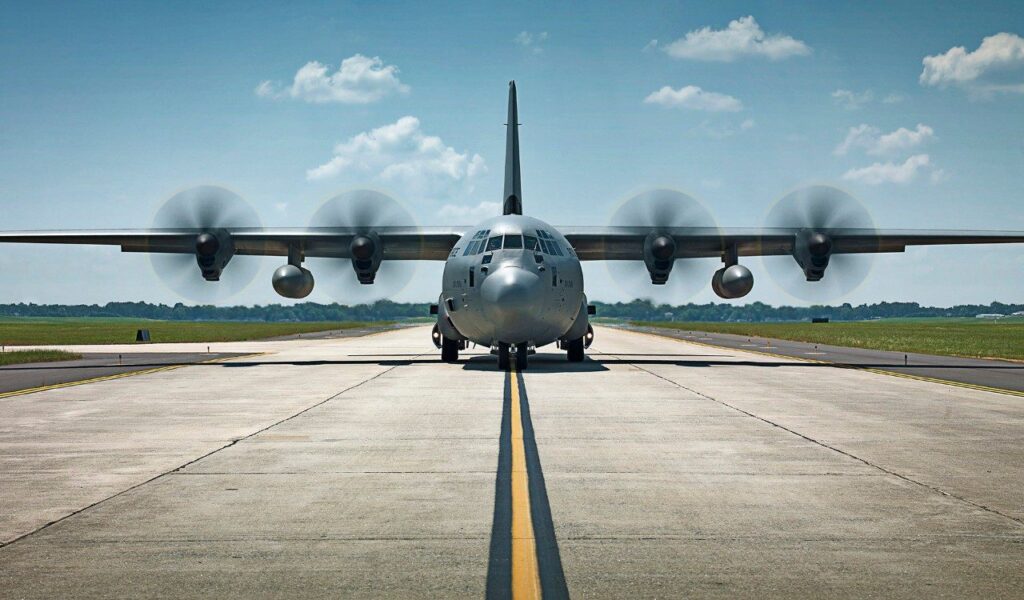Structured Training as a Force Multiplier for C-130 Operators
Why Training Matters More Than Ever
The C-130 remains one of the most versatile and widely deployed aircraft in the world. Its ability to operate in austere environments, carry diverse payloads, and adapt to military, humanitarian, and commercial missions makes it indispensable. Yet sustaining its performance is increasingly complex. Operators face multiple pressures: aging fleets that demand deeper maintenance, regulatory environments that are tightening scrutiny, and workforces stretched thin. In this context, training is not an administrative function. It is a strategic lever for resilience.
The risks of inadequate training are tangible. Without structured, regulator-approved programmes, operators risk delayed readiness, poor audit outcomes, and costly reliance on external support. The wrong training system can ground aircraft as surely as a technical fault.
The Gap in Current Models
Many existing training programmes fall short in three areas:
- Limited access to content that is both relevant and regulator approved.
- Difficulty handling ITAR sensitive data and documentation.
- Weak integration between classroom theory, hands-on practice, and compliance reporting.
These weaknesses create fragility. Teams may appear trained, but critical gaps are revealed under audit or operational stress. Training records may lack traceability, and skills taught in theory may not translate into reliable performance on the hangar floor. In some cases, mishandled ITAR data can invalidate entire programmes. The result is inefficiency and increased operational risk.
From Gaps to Structure
Airmen Technical Services addresses these challenges with a structured, three-phase training model built for regulated environments:
- Discovery: Identifying capability gaps, mapping requirements, validating feasibility, and securing approved data. This ensures alignment with both operator needs and regulatory expectations from the start.
- Development: Designing content aligned to the operator’s fleet, regulator frameworks, and approval processes. SMEs lead course creation, embedding real-world practices. Regulator approval and ratification are integrated into this stage.
- Delivery: Combining classroom teaching with practical instruction on client assets, supported by a digital portal that tracks progress, stores student records, manages assessments, and creates a complete audit trail. Delivery is flexible, onsite or at UK-based facilities, and incorporates both instructor-led and self-guided formats.
This approach transforms training from a tick-box exercise into a managed, measurable process that builds both confidence and competence.
Breadth and Depth That Operators Need
C-130 operators require training that covers diverse disciplines from metallic structures and avionics inspections to loadmaster operations and engine run training while also providing depth that accounts for platform variants and regulatory demands.
Airmen’s portfolio includes:
- B1/B2 Combined Training (theory and practical).
- C-130 Engine Run Courses.
- Metallic Structures, from foundation to advanced.
- Avionics Systems and Inspection Techniques.
- Loadmaster Operations Training.
- Human Factors, EWIS, and FTS awareness.
- JCAR 145 and Part-M Awareness.
- ETOPS, RVSM, and RII fundamentals.
This breadth ensures operators can address the full spectrum of workforce needs, while modular design allows tailoring to specific fleets and mission profiles.
Digital Training Portal
A key differentiator is Airmen’s secure training portal, which underpins every programme. Features include:
- Centralised storage of employee training records.
- Course scheduling, progress tracking, and completion logs.
- Supervisor-level reporting for oversight.
- Secure certificate and documentation archive.
- Access to self-paced modules and direct instructor communication.
- One year of access included at no additional cost.
This portal eliminates fragmented recordkeeping and gives operators immediate proof of compliance during audits or regulator reviews.
Why It Matters in Practice
The impact of structured training extends beyond the classroom:
- Regulatory Assurance: With regulator approved content and a full audit trail, operators reduce the risk of failed inspections or grounding events.
- Workforce Resilience: Competence is spread across teams, reducing dependence on a few experienced individuals.
- Operational Continuity: Training aligned to platform and regulator needs enables faster, more reliable responses in high tempo environments.
- Financial Efficiency: Reduced rework, improved maintenance quality, and lower reliance on costly OEM support.
Consider a short-term maintenance surge. Without rapid access to approved training and compliant records, operators face delays that ripple across schedules. With Airmen’s structured system, technicians arrive prepared, records are instantly accessible, and audits can be passed with confidence.
Training as a Strategic Enabler
Training is too often seen as a cost centre. Structured correctly, it becomes a force multiplier. Operators with consistent, regulator aligned programmes enjoy higher fleet availability, stronger audit outcomes, and more resilient teams. For legacy platforms like the C-130, this difference is decisive. The future of these fleets will be determined not only by technical upgrades but by the ability of operators to sustain readiness under modern compliance pressures.
Conclusion: Why Airmen
C-130 operators need training systems as dependable as the aircraft they support. Airmen delivers exactly that: structured, regulator ready programmes combining technical depth, digital oversight, ITAR awareness, and operational flexibility.
Structured training should be viewed as an essential component of fleet management. It provides a framework for sustaining capability, protecting compliance, and preparing technicians for the demands of every mission. For operators managing legacy fleets under modern pressures, structured, regulator aligned support is a foundation for resilience.
For operators managing legacy fleets under modern pressures, the choice of training partner will shape future resilience. Airmen Technical Services provides structured, regulator aligned programmes that combine technical depth with digital oversight and practical delivery. Our focus is to strengthen compliance, build workforce capability, and ensure operational continuity for the C-130 fleet.



